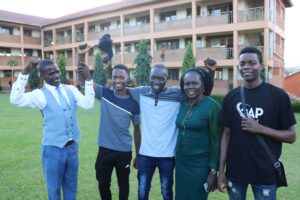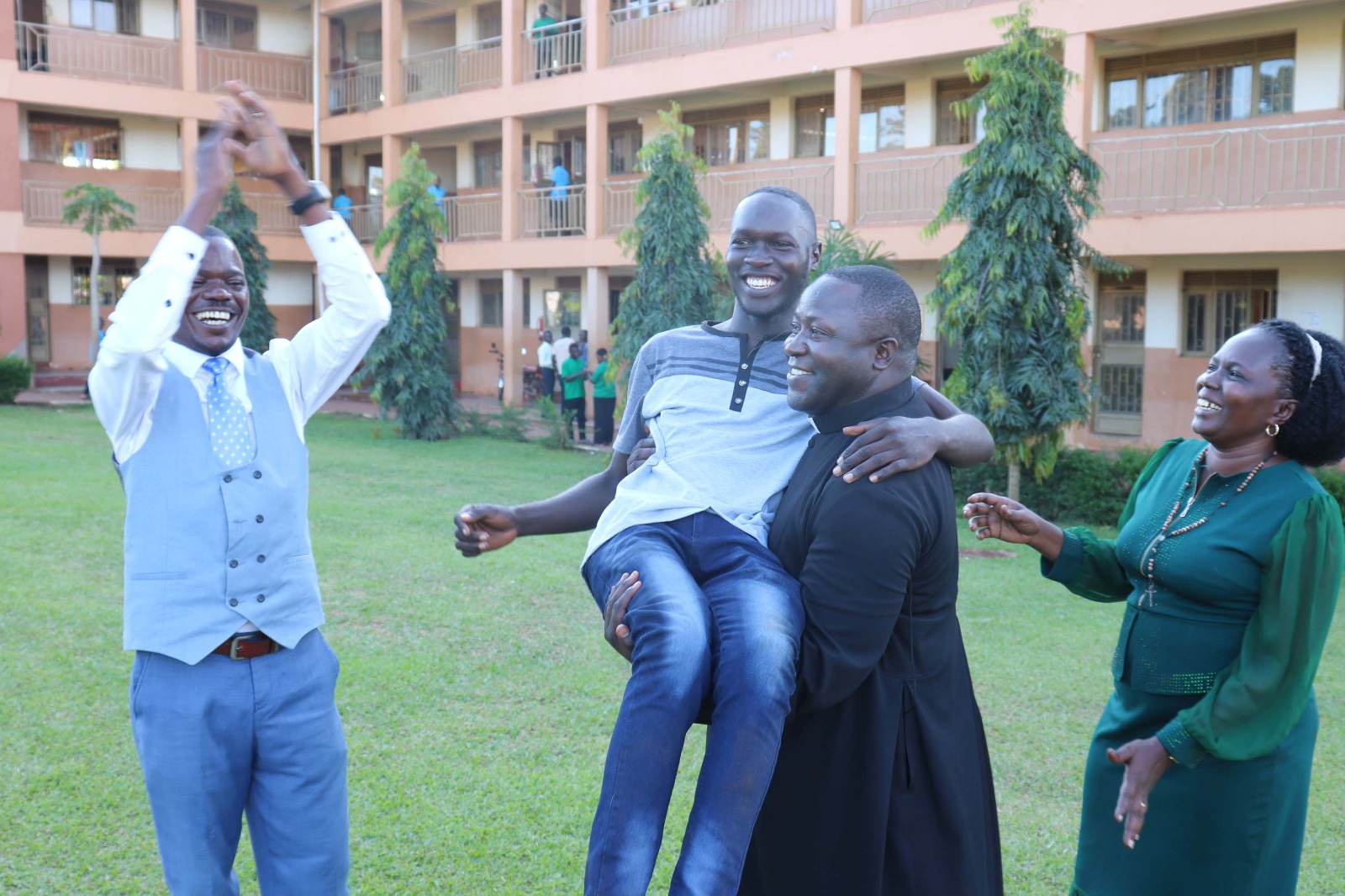
The Uganda National Examinations Board (UNEB) on Thursday March 7, 2024 released the results for the 2023 Uganda Advanced Certificate of Education (UACE) examination with 80,643 students meeting the criteria for admission into university degree programs.
University admissions to degree courses in Uganda have, up to date, been considering UACE results with at least two (2) principal passes in prescribed subjects obtained at the same sitting.
During the release of the examination results, Dan Odongo, the UNEB Executive Director highlighted that despite 108,492 candidates, equivalent to 99.1 percent of exam takers, meeting the qualifications for UACE certificate, 80,543 individuals, constituting 73.7 percent of the qualified candidates, are eligible for university admission.

According to records, this marks the highest number of students qualifying for university education in Uganda within a single year, nearly matching the total population of enrollment in public universities recorded in 2019 which stood at 90,300 students.
Those who have qualified will be seeking to be admitted in the over 64 universities and degree awarding institution which are in the country.
Among those who have qualified, only approximately 4,000 students will receive government-funded scholarships, distributed into three categories including national merit, district quota (for top performing student from each district), and sports and special needs scheme. The remaining individuals will need to cover their expenses independently or seek financial assistance through the government loan scheme.
Meanwhile, Odongo said that the 2023 candidates posted better performance and an increase in entries for the examination compared to previous years with nearly half of the students obtaining the highest level of three principal passes.
As per the analysis of results provided by UNEB, a total of 52,452 candidates, constituting 47.9 percent, achieved three principal passes. This percentage is slightly higher than the 43.5 percent recorded in 2022, which amounted to 41,973 candidates. It’s important to note that candidates sit for three principal subjects and two subsidiary subjects.
The results also indicate that 18,624 students achieved one principal pass, while 9,225 obtained a pass with one subsidiary pass. While this group of learners may not qualify for direct admission into a university degree program, they still have the opportunity to be admitted to institutions of higher learning to pursue diplomas and certificates in different fields.

Among the large entry subjects, the performance indicated that history stood out as the most passed subject, with over 93.6% of the registered 30,170 candidates obtaining a principal pass in it. History has been the best done subject in previous year.
The released results also underscore substantial improvements in terms of principal passes in Entrepreneurship Education, Christian Religious Education, Geography, Literature in English, Agriculture, Chemistry, Biology, and Art.
The analysis further revealed that, despite the fewer number of female candidates compared to males, proportionally they performed better overall, except in subjects such as Agriculture, Chemistry, and Biology.
Quality of work improved
Odongo observed that examiners have reported an enhancement in the quality of candidates’ work, evident in higher mean scores. This improvement has been noticeable even in traditionally challenging subjects such as biology. However, he acknowledged that the core science subjects still exhibit a principal performance level lower than desired.
He attributed this persistent issue to the likelihood that many teachers may not be utilizing the candidate work reports, which are published to guide educators on ways to enhance the quality of students’ work.
According to UNEB’s assessment, teachers are predominantly instructing concepts in a theoretical manner, resulting in candidates lacking practical skills to conduct experiments and effectively record, interpret, and analyze their results. This deficiency in practical skills is noted as a concern.
For humanities, the report highlights instances of misunderstanding questions, coupled with difficulties in discerning important key words and verbs such as “describe,” “explain,” “illustrate,” “evaluate,” etc. This suggests a need for improved comprehension and application of question instructions among candidates in the humanities.
During the examination release, Janet Kataaha Museveni, the Minister of Education and Sports, expressed satisfaction with the growing number of students who participated in the exams. This year witnessed a 12 percent increase in candidature, rising from 97,890 in 2022 to 110,553.
The minister expressed equal satisfaction with the performance of female candidates, highlighting that this positive development demonstrates the inherent potential of girls. However, she pointed out that gender stereotypes are likely hindering them from fully realizing their abilities.
Kataaha Museveni further noted that, as expected, many of the students who have qualified will aim to join the university. While this aspiration is commendable, she emphasized that there are equally rewarding opportunities in other tertiary institutions. She advised students to consider exploring technical training colleges and health training institutions as viable alternatives.
As per the minister’s remarks, Ugandan students who successfully complete A-levels have traditionally focused solely on university education. Technical education, on the other hand, has often been perceived as a fallback for those who fail to meet university admission criteria.
However, there has been a recent shift in community awareness, recognizing Technical and Vocational Education and Training (TVET) as a viable alternative. This change is evident in the growing interest in TVET, even among students who have achieved the maximum three principal passes.
*Source – URN*
